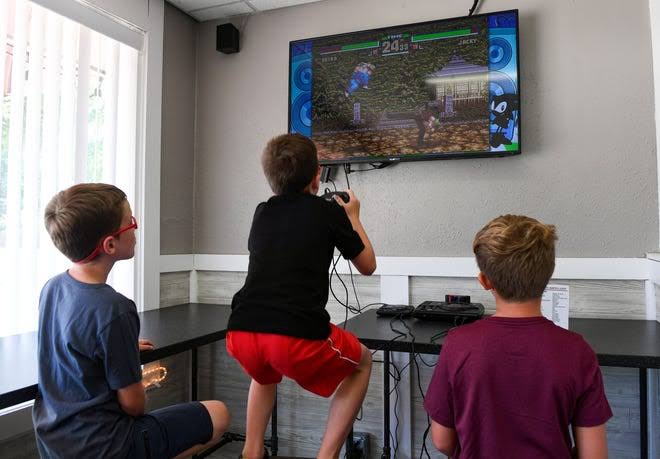Video games have become a ubiquitous pastime worldwide, with an estimated three billion players of all ages engaging in console, PC, and smartphone gaming. In addition to entertainment, video games have also been found to have numerous positive effects on children’s cognitive, problem-solving, reasoning, social, and self-knowledge skills. This article explores the various ways in which video games can help children learn valuable skills, and provides advice to parents on how to ensure safe and age-appropriate gameplay.
Cognitive Skills
Join our WhatsApp ChannelVideo games require a high level of concentration, split-second reactions, and quick decision-making, which can help children detect and react to changes in their environment. Furthermore, the need to remember pictures, characters, and secret passages, as well as using maps, can improve memory and attention to detail. Studies have also shown that certain games can enhance creativity.
Problem-solving Skills
Games can improve problem-solving skills by teaching children how to use logic and creativity to find solutions to complex problems. Breaking down problems into manageable parts and working on them one at a time can help children develop a deeper understanding of how to tackle complex issues.
Reasoning Skills
Understanding how to read data, different tools, and metrics are valuable skills that enable children to make sense of the world around them. In today’s data-driven society, the ability to make meaningful connections, apply sound judgment, and build persuasive arguments can provide lifelong benefits.
Social Skills
Online gaming has revolutionized the way children interact with one another, allowing them to communicate and collaborate with friends and players from all over the world. Chat features in games can help children develop communication and teamwork skills, learn new languages, and become familiar with different cultures.
READ ALSO: 10 Clever Ways To Make Money In 2023
Self-Knowledge
Playing video games can help alleviate anxiety and improve mood. Video games can provide a sense of fulfilment, teach the importance of completing tasks, and demonstrate how learning new skills can lead to better results and success.
Advice for Parents
Parents and guardians should consider the age appropriateness of video games, and monitor their children’s behaviour, school performance, sleep, and screen time usage. Here are some helpful tips:
Check the age rating of the game before purchasing it.
Avoid games that allow in-app purchases, which can bypass the need to develop skills through game progression.
Allow gameplay only in common areas of the home to monitor behaviour while building trusting relationships with children.
Agree in advance on play times and durations to help children learn how to manage their time effectively.
Turn off game notifications and set up parental controls on consoles and phones.
Talk to children about staying safe online, recognizing cyberbullying and scams, and being aware that not everyone they meet online is trustworthy.
Benefits for Adults
Video games can also have beneficial effects on adults, such as improving spatial vision and visual attention in some visually impaired individuals. Additionally, some doctors play games before surgery to improve their techniques.
Conclusion
Video games offer many benefits to children, including improved cognitive, problem-solving, reasoning, social, and self-knowledge skills. Parents and guardians can ensure safe and age-appropriate gameplay by monitoring behaviour, usage, and content, while also building trusting relationships with their children. Video games can also benefit adults by improving visual and spatial abilities and enhancing surgical skills.
















Follow Us